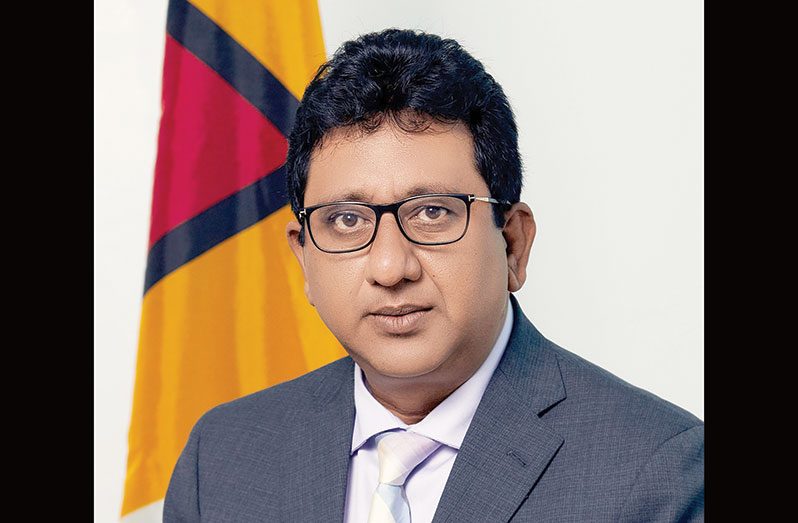A TEAM from the European Union (EU) is scheduled to visit Guyana to conduct inspections and begin discussions on the requirements needed to advance plans for Guyana to become a regional drugs and pharmaceutical manufacturing hub.
This was announced by Attorney-General and Minister of Legal Affairs, Anil Nandlall, S.C., as he delivered remarks on Saturday at the opening of the Sheriff General Hospital at Leonora, West Coast Demerara.
“Last night [Friday], I was informed by the representative of the European Union here that a team from the union will come to Guyana to begin work with us here, [to] look at our on-site capabilities and begin the conversation with us in the various sectors to start the process of making Guyana and the Caribbean an area that will become a drugs and pharmaceutical manufacturer in this hemisphere,” Nandlall shared.
Nandlall made the disclosure as he saluted President, Dr Irfaan Ali, for leading the charge to see the production of pharmaceuticals in the Caribbean region done in a substantial and major way.
He reminded attendees that there remains a severe void in the global Southern hemisphere for the manufacturing of pharmaceuticals and the capabilities to do so. Fortunately, this has begun to attract the attention of global health providers.
“Under the astute leadership of President Ali, Guyana will partner with Barbados in leading an initiative in the Caribbean region which is intended conceptually to make the Caribbean self-sufficient in terms of the manufacturing of pharmaceuticals. A lot of work has to be put in to make these undertakings possible,” Nandlall noted.
Guyana and Barbados, along with Rwanda, are signed on to the Pharmaceutical Equity for Global Public Health Equity, an initiative that would see pharmaceutical companies here eventually manufacturing drugs for distribution to Caribbean, Latin American and African countries.
The initiative was launched in November 2022, on the sidelines of COP 27. There was an open invitation to other countries in the Caribbean, Latin America and South Africa to sign on to it.
The initiative aims to develop and manufacture 60 per cent of all essential, contemporary pharmaceuticals for the populations of Latin America, the Caribbean, and Africa within their respective continents by 2040.
It is intended for the cooperation to focus on next-generation oncological drugs, preventive and therapeutic vaccines, as well as on modalities for women’s health.
Talks of the need for regional security in the availability of drugs and pharmaceuticals have come into stark focus since the COVID-19 pandemic, which highlighted the global disparity in the manufacturing and distribution of vaccines, when small nations struggle to procure vaccines, even as many developed nations stockpiled vaccines for their populations.
“One of the hardest tasks I had so far as President was to sit at the other end of a telephone speaking with vaccine manufacturers across the world and hear them say to me, ‘Yes, we can give you [vaccines] but three years from now,” President Ali noted, as he too delivered remarks on Saturday at the hospital’s opening.
He reiterated his government’s commitment to working towards security for the region in the manufacturing of drugs and pharmaceuticals.
“Never again must Guyana and this region find itself at the mercy of such a system…, not again should a developing world find itself at the mercy of such a system. We are going to do all it takes to build our capacity with this region so that this region and Guyana and you, the people, will never, ever be left at the mercy of a system that does not deliver,” Dr Ali pledged.
Last year, while attending the sod-turning ceremony for a new mRNA vaccine factory in Rwanda, President Ali had indicated a desire to establish a local vaccine production facility here. India, a world leader in this sector, has already expressed a strong desire to work along with Guyana on this initiative.
President Ali has said that the establishment of a local vaccine production facility in Guyana is a significant step forward in the country’s efforts to improve healthcare, and strengthen its healthcare infrastructure.



.jpg)








